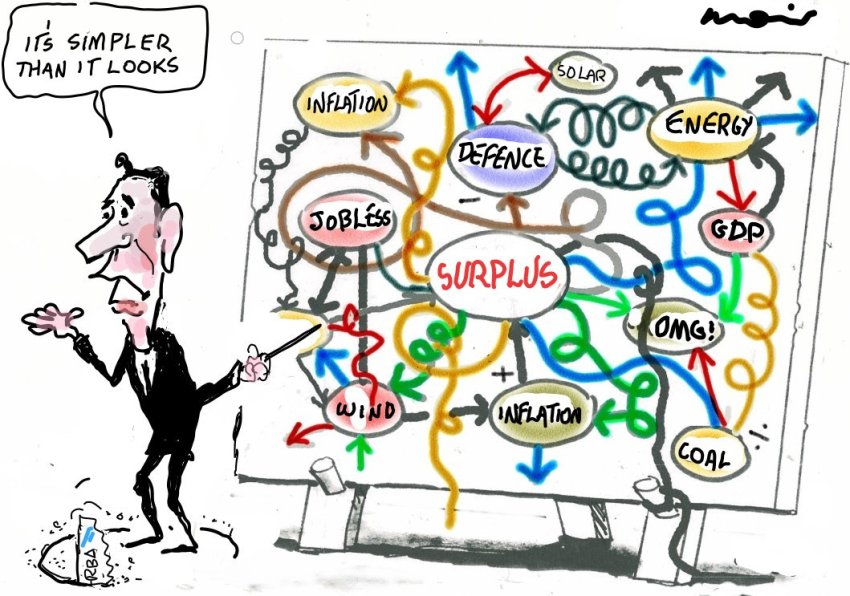
Working-class families in Australia are battling a sustained cost-of-living crisis. Recent research shows that two out of five families in this wealthy country are cutting their spending on groceries to pay other bills and 17.7% are skipping meals.
Yet, economists are speculating that the Reserve Bank of Australia (RBA) will raise interest rates further when its board meets on November 7.
The reason for this speculation is that the inflation rate, last measured by the Australian Bureau of Statistics for the 12 months to August, was 5.4%.
While this is down from an 8.4% peak last December, the RBA wants inflation to be reduced to between 2–3% no matter how much pain this causes to families.
Another rate rise will hit an estimated 2.6 million households that originally took out mortgages when interest rates were much lower.
Research by Flinder shows that 39% of home mortgage holders reported they are struggling to pay their home loans and one in seven (the equivalent of 500,000 families) are worried they might have to sell their homes.
Then there are the growing numbers who are unable to even try to buy a house and are desperate to hang on to their home as rents continue to rise.
However, Michele Bullock, the new RBA governor, claimed in her first official speech that renters had “spare cash” because “rising rents have been more than offset by growth in income”.
The RBA also wants the unemployment rate to rise from 3.6% to 4.5%, despite evidence that many workers are being forced to take on second, and even third, jobs to survive the cost-of-living crisis.
Bullock is displaying the same cruel indifference to the suffering of ordinary folk that her predecessor, Philip Lowe, did.
Lowe bluntly justified inflicting pain in his last public appearance at an August 11 parliamentary committee.
“The reason that monetary policy has been assigned to an independent central bank is that it is very difficult for the political class to do what we are currently doing — that is, putting up interest rates. People are hurting, it is very uncomfortable, and we’re putting up interest rates.
“In parts of the community, we are incredibly popular, but I am often reading in the papers that I’m the most unpopular person in the country. That’s fine.”
The Anthony Albanese Labor government supports this cruel policy: it cynically replaced Lowe to give the public the false impression that it was responding to public anger at the RBA.
But it does not have to be like this. A government that truly represented the interests of the majority could implement a set of policies to address the cost-of-living crisis which would serve the interests of the majority instead of the capitalist ruling elite.
The Socialist Alliance has put forward 10 socialist solutions to the cost-of-living crisis:
1. Full and automatic quarterly indexation of wage rates and welfare payments to keep up with inflation. All welfare payments should be raised to a liveable and dignified level of income.
2. The minimum wage should be raised to at least $25 an hour and penalty rates should be fully restored.
3. Housing is one of the biggest costs for all but the very rich, so private rents should be capped at September 2020 levels for 10 years and public and social housing rents set to be no more than 20% of a renter’s income.
4. Rents and housing prices have become unaffordable because of property speculation, so a program to radically expand the supply of quality and ecologically sustainable public housing is needed to guarantee affordable housing for all who need it.
5. Another significant cost-of-living is health. Australia needs to restore free and universal health care and include free dental care while ending the subsidies to private health insurance companies. Abolish the Medicare levy.
6. Public education — from early childhood to tertiary level — should be made totally free and the Higher Education Loan Program debt (a more than $100 billion burden mostly on younger people) should be cancelled.
7. Provide free, 24-hour childcare funded by a levy on business and eliminate the gender pay gap.
8. Make public transport comprehensive, frequent and free. This will remove a major cost-of-living while making a significant contribution to addressing the climate emergency and improving the sociability of our cities and towns.
9. Scrap the GST, cancel the Stage 3 tax cuts and impose a steeply progressive taxation system. Raise the company tax to 49%; establish an additional super-profits tax and a wealth tax on the super-rich.
10. The Reserve Bank has been raising interest rates to force the working class to carry the burden of inflation driven by corporate profiteering. Its functions should be taken over by a democratically-controlled People’s Bank, formed through the nationalisation of the banking sector.
These measures could easily be funded by a government with the will to break from the corporate profits-first agenda of the major parties and reverse the AUKUS nuclear-powered submarine deal and other expensive offensive arms acquisitions.
[Peter Boyle is a member of the national executive of Socialist Alliance.]